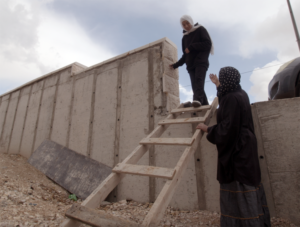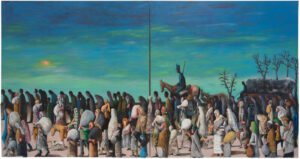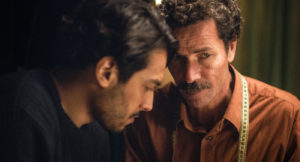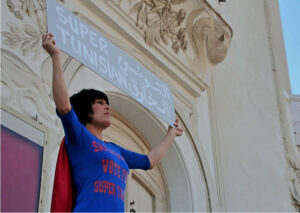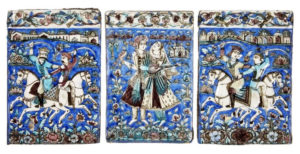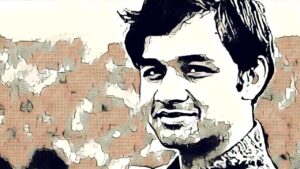In Gaza, where airstrikes define life, in a landscape scarred by shrapnel and scattered steel, where starvation is affecting half the population, comes something close to a miracle — the true story of Tamer and Sabreen.
In Gaza, where life is measured not by days, but by the number of airstrikes and the roar of warplanes; where lovers walk beneath a sky littered with fiery shrapnel and scattered steel; there is no true refuge from death. There is no box to lock themselves inside to stay safe. And yet, amidst the destruction, love somehow finds a way to flourish. Hearts still beat for one another, clinging to the fragile hope of preserving beauty on this scarred land. Out of this devastation came something close to a miracle — the story of Tamer and Sabreen.
When Sabreen opened her eyes after the anesthesia wore off, she didn’t yet know that her life had split into two parts: before the bombing and after. Her leg was gone. Her body was no longer whole. But reality had not yet fully settled in her mind. She didn’t see the white hospital ceiling, hear the bustle of nurses, or smell the medicine. She could see only one thing: Tamer’s eyes. He had promised her that their love would last as long as the world turned.
“The first thing I saw when I opened my eyes was Tamer beside me,” Sabreen recalls. “He was afraid for me, but he tried to reassure me. His eyes were full of love and strength. I felt I wasn’t alone. I knew he would stay, no matter what.”
She stared at his face, not to confirm his reality, but to rekindle her memories of hope and joy. Her gaze clung to his face like a lifeline to existence itself; she didn’t want to lose it.
Tamer, for his part, carried another burden: to convince her that love, not a leg, could uphold the body.
He wanted her to believe that a vow was more than just warm words spoken in easier times; it was a living truth and an identity that could drive away doubt and ghosts.
By keeping his promise, Tamer showed her the path again — no cracks in their relationship, no wound that could alter the course of their lives together.
“I was afraid for her, but I had to be strong for her,” he says. “We promised each other that we would walk this road together, for better or worse. I couldn’t leave her. Impossible.”
Sabreen remembers:
“When I woke up from the anesthesia, he surprised me with a long embrace and said, ‘I’ll stay with you no matter what happens.’”
Between Airstrikes and Promises
Sabreen wrestled with the new reality she didn’t want to accept: She was no longer the girl who ran, stood tall, and danced with joy because she’d found her life’s comfort. In one wretched moment, she needed a wheelchair to face this cruel world.
Her body had betrayed her—her leg was gone—but one hand remained, holding hers tightly and saying, “I’m here.”
“The way he held my hand told me, ‘I will never leave you,’” Sabreen smiles. “And truly…he never left. Not for a moment.”
Tamer says:
“Every time I touched her wound, I wished I could turn back time. I wished I could take her place. But all I could do was be there beside her.”
Hiding and Laughing
They found secret ways to hide from hospital security so that Tamer could spend a few extra minutes with her. “We laughed later about how we’d sneak around just to be together,” they recall.
Tamer perfected that sneaking in order to reach his beloved. It was like crawling through fire, ruin, loss, and exile itself. It was a kind of resistance that made love stand out brighter than any ugliness the war could unleash.
There was no place for a white dress in war. But love changed the equation.
As their wedding day approached, Sabreen refused the idea.
“I don’t want to wear a white dress. What joy could I feel as a woman with a missing leg? I couldn’t feel happiness,” she said.
But Tamer insisted. He fought her despair with his certainty and convinced her that the ceremony was for their hearts, not her leg.
On their wedding day, Sabreen wore her white dress and walked with crutches through the ruins while Tamer waited, seeing an angel walking the earth.
“After the ceremony, she told me, ‘This is one of the happiest days of my life,’” Tamer remembers, his eyes alive with love for Sabreen. That’s how she looked into his eyes — full of trust.
What has changed?
Tamer, who used to split his time between working as an art teacher for children and managing procurement for a civil society organization in Gaza, can no longer juggle both roles. Caring for Sabreen now consumes much of his time, so he chose to focus solely on his administrative job.
True to his nature, Tamer remains intent on capturing moments of joy and creating happiness with his wife as they embark on this new chapter of life, despite the heavy weight of pain.
“Our sacrifices are countless,” he says, “all for the sake of crafting a beautiful, meaningful life.”
Sabreen met Tamer by chance, before many years, and they worked on a project together, and he became her life companion and fellow traveler.
They both believe that if this chance encounter had not occurred, life would have lost much of its meaning and quiet inner warmth.
Sabreen often reflects on shaping a life filled with harmony, color, and authenticity. She takes pride in her national identity and culture and is constantly seeking ways to express her true self.
Since her injury, she has devoted herself to embroidery, believing that it restores something essential that life took away from her.
“I love embroidery,” she tells us. “It carries me back to a beautiful imagination, to a memory I yearn for.” When I embroider, I feel whole. I love life then.”
“The War Did Not Win.”
It wasn’t the wound that changed Sabreen; it was something else.
“I knew I was with the right person. His eyes told me, ‘I’m here. I’m with you.’”
As for Tamer:
“Nothing about her changed. She was the most beautiful woman I had ever seen. She was still the Sabreen I loved with all my heart.”
He believes that beauty cannot be diminished by amputation or buried under airstrikes.
“True beauty is the beauty of the soul, and that never changed. Not for a second.”
In Gaza, there is a terrifying flash at night: the light of a missile just before it explodes, followed by a thunderous boom. It’s an image Gazans have lived with for nearly two years.
But the light in Tamer’s eyes carries a different frequency, far from fear: a warmth that gave Sabreen a sense of safety and reminded her that she was still beautiful.
As everyone searched for some kind of victory, Sabreen confided,
“His eyes told me that our love had triumphed over everything.”
Trust — the bedrock of patience — allowed Sabreen to discover Tamer’s true nature. She often reflected on her choice of him, as if answering a quiet existential question. Had she chosen right? Her answer was always yes.
“I was never afraid, not even for a moment. I trusted that Tamer would never hesitate to stand by my side.”
Many buildings, streets, and squares in Gaza have collapsed. Many paths have been destroyed. But just as love for this land is an idea, Tamer and Sabreen chose love as an idea — and found in it a vessel that could not be shattered.
Together, they say:
“The war couldn’t defeat us. War is weaker than love.” “Love is an idea. Ideas don’t die.”
A Message to the World
The determination Tamer showed in overcoming the burden of war and what it stole from Sabreen’s body speaks to a deeply rooted identity, enduring love, and the spirit of Gaza’s people. They stand strong against a force that wants to erase and exile them.
Their shared imagination is the seed of the future, offering a glimpse of life amid the ruins.
If they have a child someday, they will tell them:
“You were born from the womb of the impossible…from a city the world wished to destroy, yet which gave birth to love.”
“War cannot defeat love. Love is stronger than rockets, airstrikes, and loss,” Tamer adds. “The heartbeat is louder than the explosion.”
“We may live in war, but we still search for moments full of life,” Sabreen whispers.
Gaza: Where Love Is Resistance
The story of Tamer and Sabreen is not just about two lovers who survived a bombing to continue their romance. It’s about a people who refuse to be erased and whose culture and way of life cannot be snuffed out.
They see every held hand as a seed of resistance and every smile amid pain as a quiet victory—a claim to their place on the earth. They see a wedding on crutches as a declaration that, against all odds, life is stronger than death.
In Gaza, love is not measured by words, but by what the heart endures. In this broken city, two of its children have proven something to the world.
“Gaza may lose electricity, water, or limbs, but its people will never lose their hearts. They hold the act of living sacred — no matter how close the chariots of death may come.”



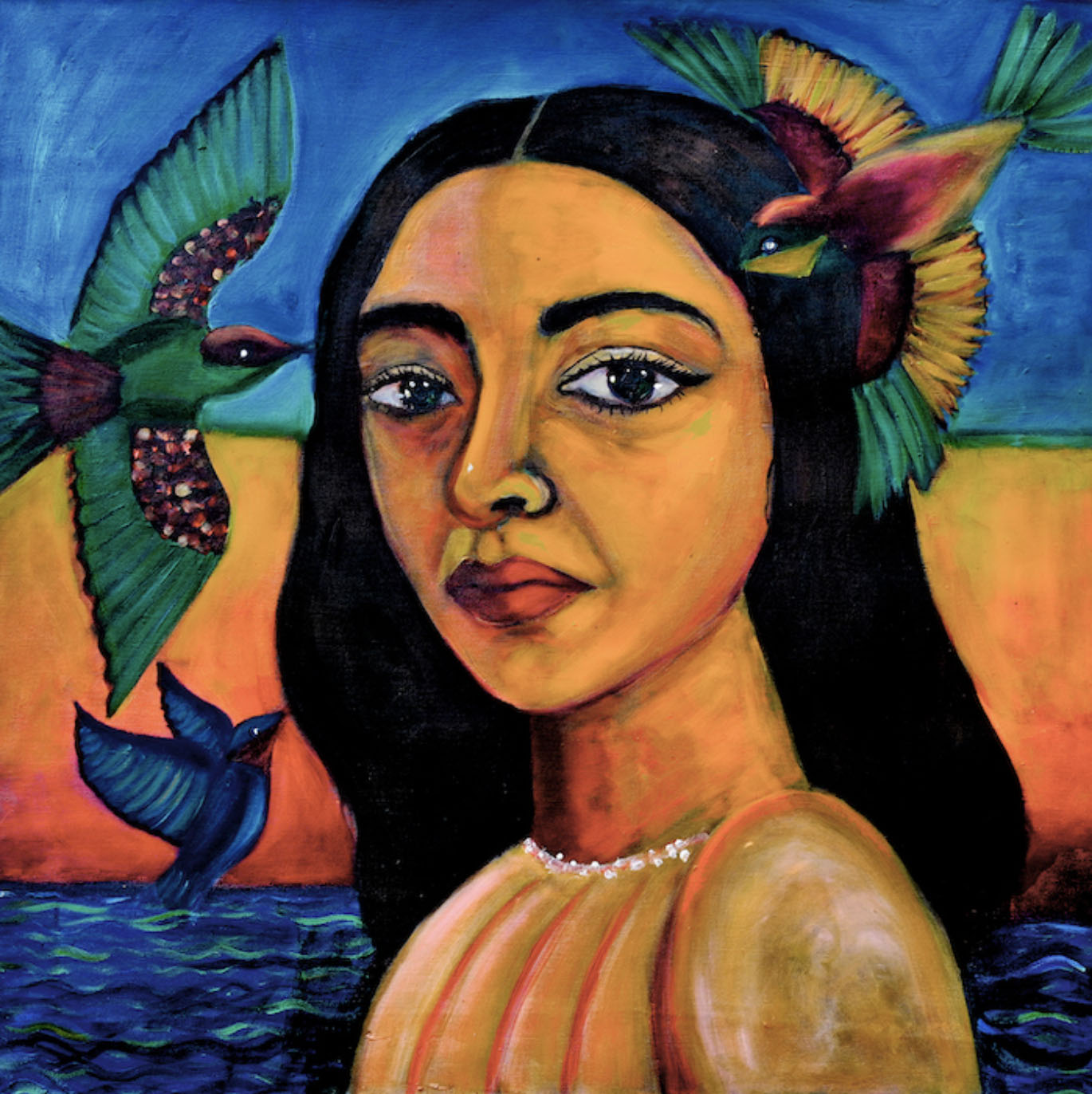
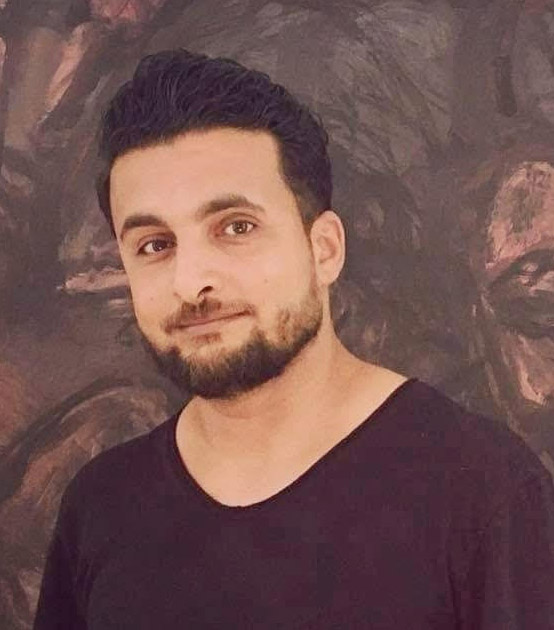




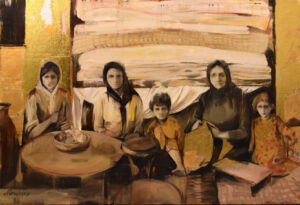

























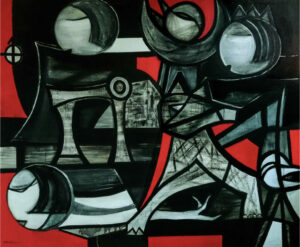


































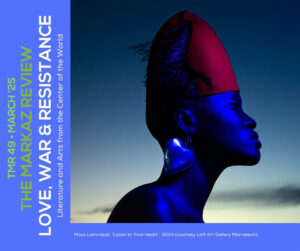


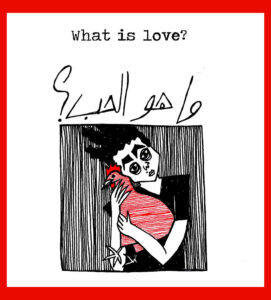


































































![Fady Joudah’s <em>[…]</em> Dares Us to Listen to Palestinian Words—and Silences](https://themarkaz.org/wp-content/uploads/2024/03/SAMAH-SHIHADI-DAIR-AL-QASSI-charcoal-on-paper-100x60-cm-2023-courtesy-Tabari-Artspace-300x180.jpg)













































































